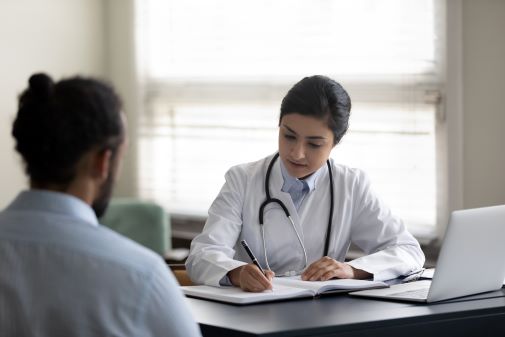University Of York-led Study Shows GPs Display Signs Of Psychological Distress And Burnout Post Pandemic
The pressures of the pandemic resulted in some GPs displaying signs of psychological distress and burnout, according to a University of York-led study.
The findings were revealed during a series of in-depth interviews with 40 NHS GPs.
During the interviews, GPs talked about low motivation, dissatisfaction with work, frustration and anger, with several describing a “sense of dread going into work.”
Overwhelmed
Work-related feelings of stress and anxiety were very widely expressed during the interviews, with GPs saying they often felt overwhelmed and described their work as “all consuming” and having a “background level of anxiety.”
The study also revealed that the pandemic had created some positive impacts – particularly changing working systems, increasing wider team-working and placing a spotlight on staff wellbeing.
At the start of the pandemic many commented on concerns around managing adaptations to remote working, but also dealing with uncertainty around what lay ahead. GPs described fear of the unknown and potential risk to themselves and their families. GPs in high risk categories, such as older GPs, those from ethnic minorities and those with health conditions such as asthma, were particularly concerned.
Impact
The study, undertaken in spring/summer 2021, reported changes in experiences over the first year of the pandemic. Anxiety increased as levels of unmet patient need grew from the autumn of 2020 onwards, exacerbated by a perceived lack of support available for patients’ mental and physical needs.
Many GPs described the negative impact on their families and relationships, and worried about the quality of patient care they provided at times of extreme fatigue – for example about feeling increasingly impatient or fearing making mistakes.
The interviews revealed that many GPs tended to downplay their own experiences of stress and, despite the impact on their mental wellbeing, many did not seek formal support.
One said: “I am normally very ‘just get on with it’ in life. I massively took a dive. Just very anxious, not in a way that I needed any kind of help… but just completely changed who I was. I was a bit of a mess, much like most of us were.”
Another said:
“I think we all were put under huge stress and people have gone off sick that have never been sick. And I think people have just cracked up basically, but the trouble is, it’s like a domino effect.”
Wellbeing
Approximately half of the participants, though, expressed some positive comments when reflecting on their wellbeing during the pandemic – particularly at the start of the vaccine rollout. Many of these related to their enjoyment of work and doing a job they loved. Some saw the pandemic as an “opportunity to step up.”
Dr Laura Jefferson, who led the GP Wellbeing and COVID study at the University of York, said: “GPs were experiencing problems with excessive workloads that were affecting their wellbeing before the pandemic.
“Our study explored GP wellbeing during the first year of the pandemic, highlighting how this evolved over time as GPs faced different challenges. Further tensions in general practice have since arisen, particularly regarding negative and misleading media portrayal, and substantial challenges to GPs remain.”

